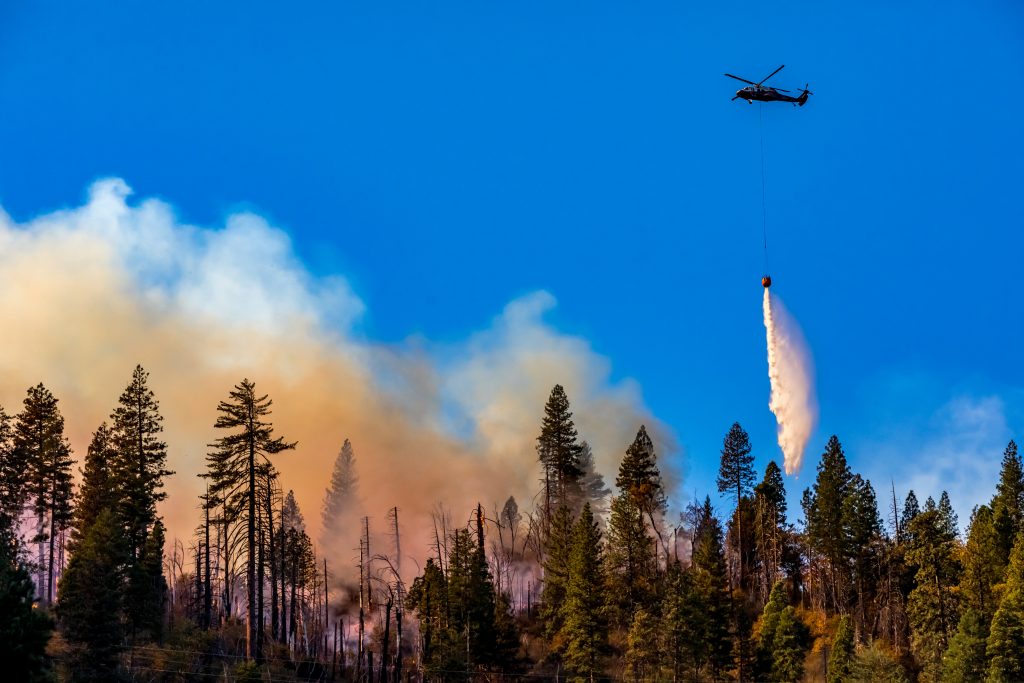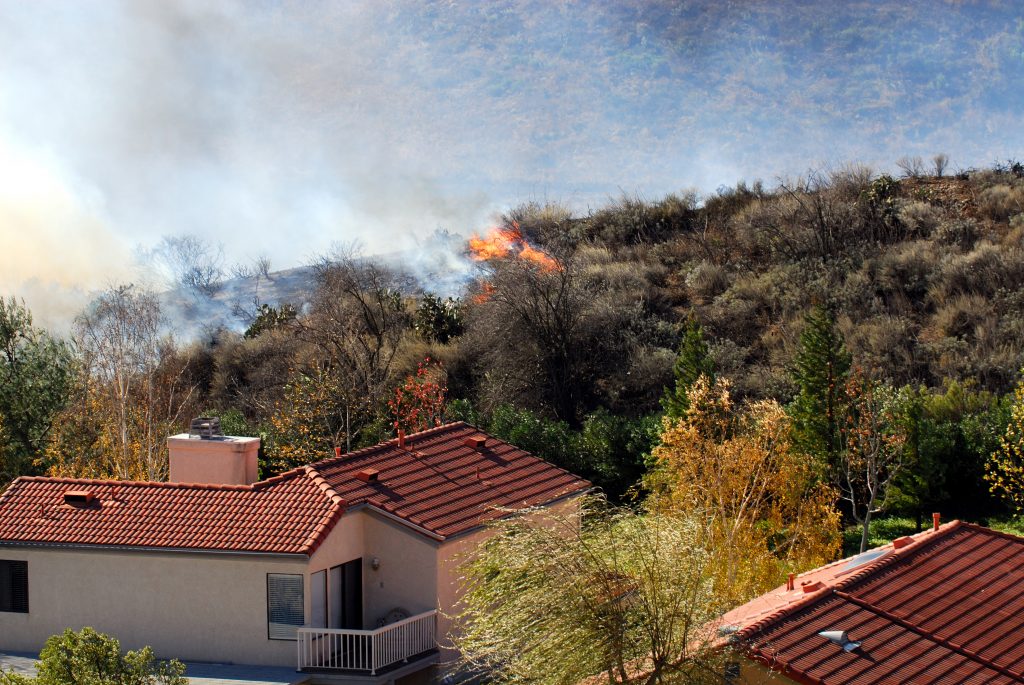A decade ago, climate change was a somewhat abstract notion, but today it’s a reality for much of the West. For the past three weeks, California, Oregon, and Washington fires have burned insanely hot, destroyed millions of acres of land, and killed over 30 people. Not only have thousands evacuated their homes to save their lives, but also now, dangerous chemicals are leaching into drinking water. And in California, the threat of more wildfires has led insurance companies to cancel homeowner policies and the state’s main utility to shut off power to tens of thousands of people pre-emptively. Excessive heat warnings and suffocating smoky air have threatened the health of people already struggling during the pandemic.
“If you are in denial about climate change, come to California,” Gov. Gavin Newsom said last month.

California’s simultaneous crises illustrate how the ripple effect works. A scorching summer led to dry conditions never before experienced. That aridity helped make the season’s wildfires the biggest ever recorded. Six of the 20 largest wildfires in modern California history have occurred this year. For years, officials have been concerned about cascading disasters, they just didn’t think they would begin so soon, but the acceleration of climate impacts has sped up the process. In a recent article in the New York Times, according to Mark Harvey, who was senior director for resilience at the National Security Council until January, the government has struggled to prepare for situations like what was happening in California. In fact, he said, “The government does a very, very bad job looking at cascading scenarios, as most of our systems are built to handle one problem at a time.” The article goes on to state that in some ways, this year’s wildfires in California have been decades in the making. A prolonged drought that ended in 2017 was a major reason for the death of 163 million trees in California forests over the past decade, according to the U.S. Forest Service. One of the fastest-moving fires this year ravaged the forests that had the highest concentration of dead trees, south of Yosemite National Park.
California, Oregon, and Washington Fires: What is the Cause?
According to climate scientists, the warmer and drier conditions create drier fuel, and fundamentally the science is very, very simple. What would have been a fire easily extinguished now just grows very quickly and becomes out of control. They also say the mechanism driving the wildfire crisis is straightforward: Human behavior, chiefly the burning of fossil fuels like coal and oil, has released greenhouse gases that increase temperatures, desiccating forests and priming them to burn.

And while firefighters are battling the blaze, the fires will have lasting long-term effects from smoke inhalation to damaged drinking water systems. Wildfire smoke can prove deadly, especially among older people who not only experience respiratory problems but also heart attacks and strokes. The smoke itself is a mixture of gases and particles like volatile organic compounds, carbon monoxide, soot, and ash. Right away, it can cause watery eyes and scratchy throats. But the biggest threats from smoke coming from some of the tiniest particles, particularly those with a diameter smaller than 2.5 microns, known as PM2.5. These particles can penetrate deep into the airways, exacerbating heart, and lung problems. The Centers for Disease Control and Prevention have issued statements warning that people with Covid-19 are at increased risk from wildfire smoke during a pandemic.
As for drinking water, scientists have known for years that runoff from burned homes can put harmful chemicals into groundwater and reservoirs. But research in the aftermath of the 2017 wildfires in wine country north of San Francisco and the 2018 fire that destroyed the town of Paradise in the foothills of the Sierra discovered a different threat: Benzene and other dangerous contaminants were found inside water systems, possibly from heat-damaged plastics in the water infrastructure.
So, not only will everyone in the West have to recover from the devastation of the fires on their homes and loss of loved ones, but also now their health is at even more risk. When will we demand our government take action on climate change? When will the life of our planet take a back seat to fossil fuels like coal and oil and money-grabbing corporations that are allowed to perpetuate the problem? When will we all wake up and decide enough is enough?
Hopefully on November 3rd!
 Food
Food Farmers
Farmers Sustainable Living
Sustainable Living Living Planet
Living Planet News
News